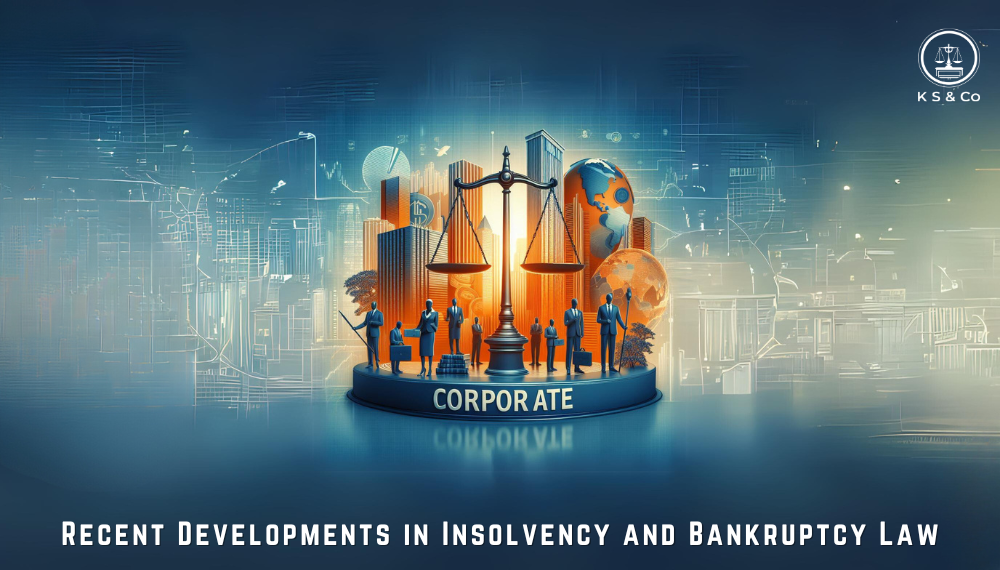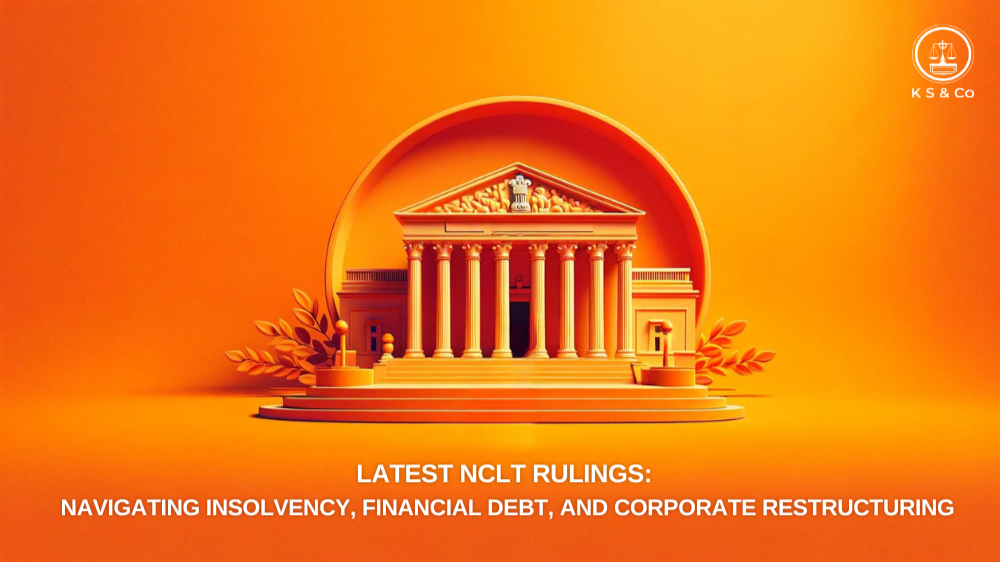The Competition Commission of India (‘CCI’) is a market regulator, it does not decide between parties but rather takes note of an anti-competitive conduct which may be brought to its notice by any person or enterprise by way of filing information. The objective of the Competition Act 2002, (‘Act’) is to prevent practices having adverse effect on the competition, to promote and sustain competition in markets, to protect the interests of the consumers and to ensure the freedom of trade carried on by other participants in markets.
The Ministry of Corporate Affairs (‘MCA’) has brought about prospective changes by statutorily mandating National Company Law Appellate Tribunal (‘NCLAT’) as the appellate tribunal for appeals arising from the CCI, instead of the Competition Appellate Tribunal. The merger control has subsided concerns pertaining to significant delays in the M&A regime, which also observed removal of the 30-days filing deadline for notifiable transaction thus doing away with unnecessary penalties for delayed filings.
The Commission has also issued guidelines on non-compete prescribing assessment of non-compete restriction in the M&A transactions. The carving out for the state-owned enterprises is not in consonance with other major competition jurisdictions and results in creation of ownership-based divide, distorting the level playing field amongst private companies and state-owned enterprises. Provided that CCI has the ability to levy highest economic penalties, the application of turnover remained contested until Supreme Court settled the issue in relation to interpreting turnovers as ‘relevant turnover’ thereby adopting the principle of proportionality. The requirement for formulating penalty guidelines still subsists as concern for guiding industries.
Further, to contribute the ease of doing business in India, the Government shall set up benches of the Commission to speedily resolve the issues pertaining to this framework. This newsletter aims at such highlights of the Commission wherein issues revolving around abuse of dominance, cartelization, anti-competitive agreements were dealt in consonance to the international standards of the Competition legislations, which would be pondered upon in the following segment:
Anti–Competitive Agreements: Dismissal of Interim Relief to Informants
In the present case of Saturn Vehicles Pvt. Ltd. vs. Hyundai Motors India Ltd., information was filed by Informant Saturn Vehicles against the Opposite Party (OP) Hyundai Motors, under section 19(1) (a) of the Competition Act 2002, alleging contravention of the provisions Section 3(4) anti-competitive agreements. The Informant entered into dealership agreement for period of 3 years which was terminated by OP after giving 30 days notice on grounds of shortcomings in Informants’ service such as poor performance in sales, service issues etc. Though Informant stated that OP imposed several vertical restraints upon its dealers which are in contravention of the provisions of this Act. The informant alleged anti-competitive behavior on part of the OP causing adverse effect on the competition in the relevant market as contended. The Commission perused the information and the material placed on record to which observed that allegation of the Informant deals with a) dealership agreement as per which dealer not to invest in any new or existing business not relating to Hyundai resulting in refusal to deal, b) resale price maintenance as the OP placed discount policy specifying the maximum discount to be given to customers, and c) OP tying costly models with popular models to be purchased by dealers indulging into Tie-in-Agreement. The Commission passed various orders under Section 27 of the Act including directing the enterprise in contravention to Section 3 of the Act to discontinue such behavior. The OP in this regard preferred an appeal before the National Company Law Appellate Tribunal (NCLAT). The said order will attain finality subject to the right of appeal and order passed by the Tribunal. The OP has to abide by the order once it becomes final. The Informant moved an application under Section 33 of the Act seeking interim relief by praying that termination sent by the OP to it be not acted upon during the pendency of the present case. The Commission in this regard doesn’t take cognizance of the information; the application filed under Section 33 of the Act too cannot be entertained.
Ceasing Ola’s Despair: CCI Dismissed Abuse of Dominance
In the case of Fast Track Call Cab Pvt. Ltd. vs. Ani Technologies Pvt. Ltd., the informant company was engaged in the business of providing radio taxi services under the brand name ‘Fast Track’. OP is a company engaged in the business of providing radio taxi services under the brand name ‘Ola’. The allegation of the informants includes that the OP has abused its dominant position in the relevant market by offering heavy discounts to passengers and incentives to cab drivers associated with them amounting to predatory pricing under Section 4(2)(a)(ii) of the Act.
The Commission directed Director General (DG) to submit report after detailed investigation to which it analyzed that OP operator under the aggregators’ model where the operator doesn’t own the radio cabs but only acts as an aggregator that connects the drivers with prospective consumers. The DG opined that for a player to have a dominant position in the relevant market, it should be able to hold its market share for a reasonable period of time.
The analysis of the investigation report demonstrates that OP didn’t have the ability to act independently of its competitors or consumers in the market. In the absence of dominance, examination of abuse or any analysis of pricing strategy by OP is neither warranted nor permitted under the provisions of this Act. The Commission found no evidence that the access to funding from the private equity funds was inequitable rather it was their penetrative pricing strategy that facilitated them to garner high market shares and to develop networks providing sufficient positive externalities to the participants.
The Commission recognized the technological advances in the market and held that mere adoption of a new business model powered by new technology may not distinguish it from traditional players in the relevant market. It was pointed out that the technology start-ups which have access to investments from various investors to hold that there existed a level-playing field in access to finance. There existed fierce competitive environment in the industry because of the presence of abundant sources of funding and constant innovation in business and pricing models.
The Commission held that it is difficult to determine with certainty the long-term impact of this pricing strategy though it would be suffice to say that besides statutory compulsion of non-intervention OP is not dominant in the relevant market. Further, Commission’s interference at this stage in the market will disturb the dynamics and could also pose a risk of prescribing sub-optimal solution to an emerging market situation.
Penalty imposed on Acquisition : CCI Reinforcing Trademarks as Assets
The CCI noted that ITC Ltd. acquired ‘Savlon’ and ‘Shower to Shower’ trademarks from the Johnson & Johnson Group which was not notified to the Commission as required under Section 6(2) of the Act. The Commission initiated an inquiry asking the Acquirer to provide information relating to the value of assets and turnover of parties to the transaction. The said acquisition of the trademarks along with other related assets by the Acquirer was a combination in terms of Section 5 of the Act and which was effected before even the expiry of 210 days from the day on which the notice was given to the Commission.
The interpretational aspect of the provisions provide that only the acquisition of an enterprise would amount to a combination, thereby a trademark is not an enterprise or a ‘person’ as defined in Section 2 (10) of the General Clauses Act, 1897. ITC in this regard has not acquired the entire business of the products sold under the trademarks, rather has purchased the incidental rights and interests. The agreements didn’t impose any non-compete restrictions and Sellers are still entitled to continue the business sold under the trademarks.
The Commission after detailed inquiry opined that Acquirer failed to give notice as per the provisions of the Act at the time of entering into a binding agreement and the notice was filed in response to a direction of the Commission. Further, relying on the case of Baxalta Incorporated C-2015-07-297, Commission held that consummating the combination before the expiry of period specified under Section 6(2A) of the Act, will violate the ex-ante nature of regulation of combinations in India.
Thereby, in terms of Section 43A of the Act, a maximum penalty of one per cent of the combined value of the assets of the parties can be imposed.
Interpreting Relevant Market: Associations Indulged in Anti-Competitive Agreements
The Supreme Court of India in the case of CCI vs. Coordination Committee of Artists and Technicians of WB Film and Television & Ors., for the first time ruled on the substantive provisions of the Competition Law framework. M/s. Hart Video was assigned the rights to telecast the TV serial ‘Mahabharata’ dubbed in Bengali which was opposed by Committees as they contended that the serials produced after dubbing would adversely affect the artists and technicians working in West Bengal. Hart Video filed a complaint with the CCI alleging collusion amongst the association which has lead to the foreclosure in telecasting the serial.
The CCI prima facie formed opinion that there existed anti-competitive agreement and accordingly directed DG to investigate the claim. The OP contended that associations were merely a forum for opposition which forms part of their fundamental rights. The DG found them liable however, and CCI agreeing to the findings held that the collusion of the association has led to the TV channels not broadcasting serial, resulting in violation of Section 3(3) (b) of the Act. Though member of the Commission formed an opinion that activities of the association were not part of the same ‘relevant market’ thereby no question of anti-competitive activities arise.
The Coordinated Committee appealed to COMPAT to which the Authority affirmed the opinion of the dissenting member and held that the activities of the Coordination Committee were a protest against that specific situation thereby beyond the scope of the Act. The appealed was allowed to which CCI challenged such order to Supreme Court. The CCI thereby contended that the definition of the relevant market should be broadened to include the film and television industry. The Supreme Court in this regard held that the COMPAT erred in considering the relevant market as it should include the whole Film and TV industry of West Bengal.
Further, while interpreting the term ‘enterprise’ and ‘person’, the Court held that there was broad interpretation intended by the legislature as evidenced by the inclusive definition of the Act. The Court observed the functionality of these associations acting in the economic interest of its members and held such associations to be enterprise. The Court thereby held that acts of the associations in hindering the release of the TV serial were anti-competitive.
Merger Control Filings: Relief Granted
Section 5 of the Competition Act, 2002 provides that every acquisition of control, shares, voting rights or assets of an enterprise or merger, where the parties to such acquisition or merger cross the financial thresholds mentioned therein is a Combination of such enterprises. The parties to such combination have to provide notice to CCI disclosing details within 30 days of- a) Approval of proposal relating to merger by Board of Directors and b) Execution of any agreement. If parties fails to give such notice then Section 43A of the Act empowers the CCI to impose a penalty on such parties extending up to 1% of total turnover or assets, whichever higher.
In this regard, exemption has been granted to parties from filing a notice within 30 days subject to Section 6(2A) and 43A of the Act. This would mean that although the parties to the Combination are not required to file notice within 30 days, but the merger or acquisition of control, shares as contemplated under Combination should not be consummated before atleast 210 days passed from date of filing of notice or receipt of approval of the CCI.
This exemption is in line with ease of doing business in India narrative of the government which subsides the dilemma as to what would constitute a trigger document for the purposes of commencement of 30 days for filing of notice. There were instances where CCI imposed penalty under Section 43A of the Act for delay in filing notice as the parties considered different trigger event for such notice. The non-compliances were merely procedural in nature for which penalty imposed was redundant as Combination not even results in appreciable adverse effect on competition. Thus from now on consummation of a transaction which is a Combination without CCI Approval or Deemed Approval, will result in penalty proceedings. This initiative will boost investor confidence and pave way for ease of doing business in India.
Regulating Cartelization: Structural Analysis of Telecommunication Market
The Service Providers in the recent case of Cellular Operator Association of India vs. CCI, challenged the order passed by CCI under Section 26(1) of the Act and the show cause notices issued by Director General (DG). The allegations against the Petitioner were that of cartelization and actions in concert by delaying and denying adequate point of interconnections (POIs).
The Court in this regard gone through the material placed on record and quashed the majority decision given by the Commission and the consequential action of the issuance of notices by the DG under the Act and all further actions arising out of it in the facts of the case.
It was opined that the Competition Act and the TRAI Act are independent statutes. The statutory authorities under the respective Acts are to discharge their power and jurisdiction in the light of the object, for which they are established. There is no conflict of the jurisdiction to be exercised by them. But the Competition Act itself is not sufficient to decide and deal with the issues, arising out of the provisions of the TRAI Act and the contract conditions, under the Regulations. Further, Competition Act governs the anti-competitive agreements and its effect- the issues about “abuse of dominant position and combinations”. It cannot be used and utilized to interpret the contract conditions/policies of telecom Sector/Industry/ Market, arising out of the Telegraph Act and the TRAI Act.
Thereby held that the Authority under the Competition Act, has no jurisdiction to decide and deal with the various statutory agreements, contracts, including the rival rights/obligations, of its own. Every aspects of development of telecommunication market are to be regulated and controlled by the concerned Department/ Government, based upon the policy so declared from time to time, keeping in mind the need and the technology, under the TRAI Act.
Non-Compete Restrictions: CCI Issued Guidelines
The Commission has issued guidelines pertaining to the approach while dealing with non-compete clauses entered into by parties to the transactions which are notified to CCI for approval. A non-compete obligation may bind only the seller, its subsidiaries and agents. It may be imposed only on controlling shareholders of an enterprise, as on non-controlling shareholders it will not be considered ancillary to the combination.
In case of acquisition, the geographical scope of a non-compete clause must be limited to the area where the seller has offered the products or services prior to the transfer. In case of JV, the scope of it should be limited to the areas in which the partners were offering the ‘relevant products and services’ before establishing the joint venture. The scope of non-compete restraint may also include- improved version or updates of the products, services at an advanced stage of development at the time of the combination or products which are fully developed but not yet marked.
The note is consistent with the CCI’s proactive advocacy role best evidenced by the regular release of compliance manuals, booklets etc. so as to improve the understanding of competition laws among the stakeholders. Though the guidelines clarify that where a non-compete restriction is not found to be directly related and necessary to the combination by the CCI, the Commission’s order approving the combination would not cover such a restriction. It would also not automatically lead to a presumption that such clauses would infringe the provisions of the Act. This Guidance Note, would play an important role for the stakeholders in designing suitable and legally-acceptable non-compete clauses for their transactions.
Leniency Regulations: CCI Grants Order
The Commission has passed its first order on leniency application made by member of a cartel in the case of In Re Cartelization with respect to tenders floated by Indian Railways for supply of Brushless DC Fans and other electrical items. The whistleblower or leniency programmes are antitrust regulators’ to counter cartelization. This order is the culmination of a suo moto investigation undertaken by Commission based on information forwarded by CBI in the course of separate inquiry into alleged misconduct by a public servant. The information included details of an e-mail containing the quantity and rates to be quoted by Opposite Parties in respect of four tenders floated for the supply of electrical equipments. The rates quoted by the opposite parties in two of the four tenders were identical to those mentioned in the e-mail. The Commission opined that the circulation amongst the Opposite parties was the direct evidence of an anti-competitive arrangement
Further, the Commission examined call data records between the Opposite parties which revealed as ‘continuous communication’ between the parties around the dates of these tenders. These were corroborated by the statements and submissions of Pyramid, who also filed an application for grant of leniency under Section 46 of the Competition Act read with CCI (Lesser Penalty) Regulations 2009. This agreement to rig bids and to share the market by mutual allocation of tenders was held to be in contravention of the provisions of Section 3 of the Competition Act, which prohibits market carve-outs and bid rigging arrangements.
Thus CCI decided to impose a penalty equivalent to the profits of Opposite Parties and penalty of 3% of the turnover of Kanwar during the relevant period. The CCI decided to grant a significant reduction in penalty to the enterprise-applicant, as well as to the individual who was in charge of the conduct of said enterprise, even though it was privy to the direct evidence of cartelization much before the application for leniency was made. The underlining parameters for the grant of leniency appear to be complete- cooperation during the investigation and value addition to the case due to the information and evidence submitted by the leniency applicant.






